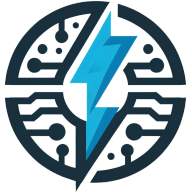6 Tips for Building a Professional Network in Electrical Engineering
In the competitive field of electrical engineering, building a strong professional network is crucial for career growth and innovation. Effective networking can open doors to new opportunities, collaborations, and valuable insights from industry experts. This article explores practical strategies for electrical engineers to expand their professional connections and advance their careers.
- Attend Industry Events and Follow Up
- Collaborate on Open-Source Engineering Projects
- Join Professional Electrical Engineering Associations
- Contribute to Industry Publications and Blogs
- Engage in Online Electrical Engineering Forums
- Mentor Students and Junior Engineers
Attend Industry Events and Follow Up
One piece of advice I'd give new electrical engineering graduates about building their professional network is to be intentional about attending industry events and technical meetups early on. When I started, I made it a point to join local IEEE chapter meetings and engineering seminars, which helped me connect with seasoned professionals and peers in a focused environment. Beyond just showing up, I prepared thoughtful questions and followed up with people afterward via LinkedIn, which helped turn brief conversations into lasting connections. I also recommend volunteering for committees or projects within these organizations; it's a great way to build credibility and deepen relationships. Networking isn't just about collecting contacts—it's about creating meaningful interactions where you learn and contribute. Starting early with purposeful engagement made a huge difference in opening doors and staying updated on industry trends.

Collaborate on Open-Source Engineering Projects
Collaborating on open-source projects is an excellent way for electrical engineers to showcase their skills and build a professional network. These projects provide a platform to demonstrate technical expertise and problem-solving abilities to a wide audience. Working with others on shared goals fosters connections with like-minded professionals in the field.
It also offers opportunities to learn from experienced engineers and stay updated on industry trends. Additionally, contributing to open-source projects can lead to recognition within the community, potentially opening doors to new career opportunities. Start exploring popular open-source electrical engineering projects today and find one that aligns with your interests and skills.
Join Professional Electrical Engineering Associations
Joining professional associations in electrical engineering can provide exclusive networking opportunities that are invaluable for career growth. These organizations often host conferences, workshops, and seminars where members can meet industry leaders and peers. Such events create a platform for sharing knowledge, discussing new technologies, and exploring potential collaborations.
Many associations also offer mentorship programs, job boards, and resources for professional development. Being part of these groups can enhance visibility within the industry and provide access to a wealth of insider information. Consider researching and joining a reputable electrical engineering association in your area or field of specialization.
Contribute to Industry Publications and Blogs
Contributing to industry publications and technical blogs is a powerful way to establish credibility and expand one's professional network in electrical engineering. By sharing insights and expertise, engineers can position themselves as thought leaders in their specific areas of focus. Writing articles or blog posts allows for the exploration of complex topics in depth, showcasing both technical knowledge and communication skills.
This visibility can attract attention from potential employers, collaborators, or clients who are interested in the author's expertise. Regular contributions can also lead to invitations to speak at conferences or participate in industry panels. Start by identifying relevant publications or blogs and pitch your ideas for articles or guest posts.
Engage in Online Electrical Engineering Forums
Participating in online forums and discussion groups dedicated to electrical engineering can significantly broaden one's professional network. These digital platforms serve as virtual meeting spaces where engineers from around the world share ideas, solve problems, and discuss the latest industry developments. Engaging in these conversations allows individuals to demonstrate their expertise while learning from others' experiences.
Regular participation can lead to recognition as a knowledgeable contributor, potentially resulting in valuable connections with industry peers. These interactions can also provide insights into job opportunities or collaboration prospects that might not be advertised elsewhere. Begin by identifying reputable online communities in your area of electrical engineering and start contributing to discussions today.
Mentor Students and Junior Engineers
Mentoring students or junior engineers in electrical engineering is a mutually beneficial way to expand one's professional network. By sharing knowledge and experience, mentors can reinforce their own understanding of fundamental concepts and stay connected with emerging trends in the field. This role provides opportunities to develop leadership and communication skills, which are valuable in any career progression.
Mentoring relationships often evolve into long-term professional connections, with mentees potentially becoming future colleagues or collaborators. Additionally, being known as a supportive mentor can enhance one's reputation within the industry, attracting more networking opportunities. Reach out to local universities or professional organizations to explore mentoring programs in electrical engineering.

